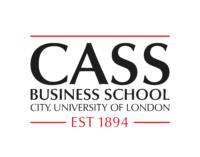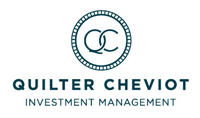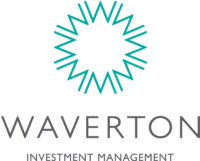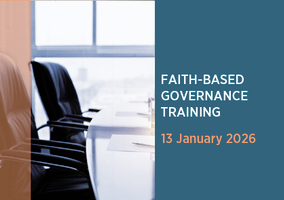We are delighted to bring you the programme for the 12th annual Trustee Conference, now in a new venue, the lovely BMA House in London Euston. As always, we bring you a mix of technical and regulatory updates alongside examples of great practice in governance and leadership, lively panel debates and inspirational case studies. This year, we open the conference with an honest and reflective keynote from RNIB chair Eleanor Southwood, and close with an exploration of what different charities are doing to meet their broader responsibilities to society, as denoted by the Charity Commission’s new strategic vision for the sector, and by the Charity Governance Code.
Once again there will be plenty of opportunities throughout the day to connect with your fellow delegates, share your issues and your knowledge, and get professional advice from sector experts. Trustee Exchange 2019 will arm you with plenty of practical solutions and ideas that you can take back to your charity to help it tackle the challenges and take advantage of the opportunities of the future. Always a sell-out event, we encourage you to book your place as soon as possible to avoid disappointment, and we look forward to seeing you on the day.
Programme
11 April 2019
-
9.00AM - 9.20AMRegistration, coffee & networkingRegistration, coffee & networking
-
9.20AM - 9.30AMChair's welcomeTania Mason, editor,Governance & Leadership
-
9.30AM - 10.00AMOpening keynote: Governing through challenging times - a chair's perspectiveShortly after Eleanor Southwood became chair of RNIB, the charity was to face serious concerns around safeguarding which led to the
departure of its chief executive and a statutory inquiry by the Charity Commission. The charity has also undergone major restructuring to
address a £12m deficit resulting in job losses. Yet she is determined that the organisation will emerge from these challenges stronger than ever,
with a sharper focus on its beneficiaries, having refreshed its strategy and launched a new brand. In this thoughtful and honest speech, Eleanor
will reflect on the challenge of making the transition from the long-established and high-profile “old guard”, outline the charity's new, more
collaborative strategic approach, and extol the importance of leaders setting the right tone from the start.
Eleanor Southwood, chair, Royal National Institute of Blind People (RNIB) -
10.00AM - 10.50AM1A. The board's role in embedding a counter-fraud cultureFraud costs the charity sector up to £2.3bn a year, and is only going to get worse. From theft of donations involving staff or volunteers, to cyber-crimes such as phishing scams or ransomware, all charities are vulnerable to fraud, and the damage done to finances and reputation can be
fatal. Macmillan Cancer Support's board recognised this growing threat three years ago and appointed Bob Browell as counterfraud manager to tackle the problem. Since then, Browell has led the way in recovering over £300,000 for the charity, by rolling out measures that have made the whole
organisation, from the trustees down, much more alive to the risks and what each person can do to aid fraud prevention.
Bob Browell, counter-fraud manager, Macmillan Cancer Support -
10.00AM - 10.50AM1B. Is your fundraising up to scratch?
The relaunched Code of Fundraising Practice is about to be published, and the Fundraising Regulator is set to announce changes to its levy for September 2019 onwards. Join this session to hear the Regulator's chief executive explain the reasons behind these key changes, and to learn how boards should use the Code to help them meet their regulatory requirement of delivering strategic oversight of their charity's fundraising activities.
Gerald Oppenheim, chief executive, the Fundraising Regulator
-
10.00AM - 10.50AM1C. Making the impossible, possible: A case study of sheer bloody-mindednessAlthough modelling of future demand forthe 17-bed Thames Hospice showed that 34 beds would be needed by 2035, its existing site was already beyond capacity and historic covenants meant it couldn’t move anywhere else. But thanks to the vision and determination of its chair and chief executive, it is now building a brand new, state-of-the-art lakeside hospice, futureproofing the charity’s services for decades to come. Join this session to hear Martin Jervis’s inspirational story of shaving mirrors, 'chance' encounters, and refusing to take no for an answer.
Martin Jervis, former chair, Thames Hospice
-
10.50AM - 11.15AMNetworking and refreshment breakNetworking and refreshment break
-
11.15AM - 12.00PM2A. Panel discussion: What does a diverse board look like?
The Charity Commission's Taken on Trust research confirmed that the state of diversity on charity boards is dire: 92 per cent of trustees are white, men outnumber women by two to one, and the average age
of trustees is 61. Just as worryingly, 75 per cent are richer than average. We're no longer shocked by these statistics, but what are we doing to address them? Join this session to hear our expert panel consider the reasons behind the lack of diversity, propose tangible solutions, and share some good practice that's already taking place.
Ben Kernighan, chief executive and Chantal Chang, young trustee, Leap Confronting Conflict; Sandra Kerr, chair, Elevation Networks and race equality director, Business in the Community; Shane Ryan, senior head of partnerships, Big Lottery Fund; Patti Whaley, interim chair, ActionAid UK; Dr Sarabajaya Kumar, senior teaching fellow in voluntary sector policy and leadership, UCL -
11.15AM - 12.00PM2B. Good financial management for trusteesProper strategic oversight of your charity’s finances is about much more than reading numbers on a page – all trustees need to understand the financial model that underpins their charity’s activities, and the drivers that affect its sustainability: diversification and predictability of income, flexibility of costs, effective systems and controls, risk appetite, reserves policy, and more. Join this session to learn the right questions to ask to assess the robustness of your business model in light of the skills and capacity of your team, and determine where your board might need to focus its time and attention.
Judith Miller, partner, Sayer Vincent -
11.15AM - 12.00PM2C. The role of the board in handling an existential threatThe care workers’ sleep-in crisis had many charities staring down the barrel of insolvency and scared their very existence was under threat. Such a situation can drive many boards to panic and spark unwelcome forensic examination of the executive team’s activities. Fortunately, the board at learning disability charity Hft had previously worked its way out of dysfunctionality and was able to rely on its transparent new models of governance, business and service delivery to ensure the organisation not only kept its head and worked as a team, but played a leading role in the sector-wide response to the crisis.
Baroness Jolly, chair, and Robert Longley- Cook, chief executive, Hft -
12.00PM - 12.50PM3A. Recruiting for skills: How to find new trusteesWe all know that tapping up your mates doesn’t cut it any more when you need new trustees, but how do you go about creating the optimum board, bearing in mind the drive for diversity and the imperative of relevant professional skills? Drawing on his extensive experience of shaping charity, school and public sector boards, Mohamed will explain how to use your charity’s objectives to determine the skillsets required around the table, how to identify potential trustees within specific communities, and how to use succession planning to improve your board’s effectiveness.
Mohamed Omer, board member - external affairs, Gardens of Peace Muslim Cemetery -
12.00PM - 12.50PM3B. Holding your nerve: Investing for the long term
For charities that rely on investments, a long-term approach helps to ride out volatile markets, survive shocks and maximise returns. Yet it's not always easy to hold your nerve in a turbulent market when charity assets are at stake. Join this session to hear Emily Petersen advise on how investor trustees can make the most of the time they have – be that time in meetings or investment time horizons – by setting clear principles and strategies, taking prudent risks, and maintaining an unwavering focus on their charitable goals.
Emily Petersen, portfolio director, Cazenove
-
12.00PM - 12.50PM3C. Building the ultimate top team: Reaching new heights togetherThe board and the senior executive team working together efficiently is the most critical factor in governance effectiveness. Key factors required for such a partnership include trust, agility, effective challenge and positive behaviours. Drawing on their recent work with a number of charities, Caroline and Fiona will lead this interactive session to explore how a board and senior executive team can get the best out of each other in order to drive greater impact for their beneficiaries.
Caroline Copeman, senior visiting fellow at Cass Business School and principal consultant at Cass Centre for Charity Effectiveness and Fiona Ash, visiting fellow at Cass Business School and service lead consultant for governance at Cass Centre for Charity Effectiveness -
12.50PM - 1.50PMLunch and networking breakLunch and networking break
-
1.50PM - 2.35PM4A. Nurturing the board/executive relationshipThe relationship between the board and the executive is pivotal to the success of a charity, but it can be tricky to achieve consensus on where strategic oversight stops and operational detail begins. How can trustees assure themselves they have the right level of information without appearing to interfere? Join this session to hear how Islamic Relief Worldwide has achieved this balance through formal and informal measures, a keen focus
on accountability, and a healthy dose of emotional intelligence.
Naser Haghamed, chief executive, Islamic Relief Worldwide -
1.50PM - 2.35PM4B. Regulatory update: Safeguarding, serious incidents, and lessons from inquiry reports
In this session, Con will cover all the latest developments in the Charity Commission's approach to regulation and their relevance to trustees and senior managers, with a particular emphasis on safeguarding not only for young and vulnerable adult beneficiaries,but for staff and others who come into contact with charities too. The session will also examine the rules around serious incident reporting and the areas trustees and senior managers should be aware of in light of recent inquiry reports published by the Commission.
Con Alexander, partner, VWV -
1.50PM - 2.35PM4C. Reviewing governance to support effective strategic leadershipIn 2016 the Royal Society of Chemistry initiated a root-and-branch governance review to clarify the role, structure and membership of the board of trustees, its reporting boards and committees, and the effectiveness of their relationship with the executive. The review involved extensive consultation with staff and the professional body’s 54,000 members, and resulted in some radical changes. Join this session to hear why the RSC undertook the review and what benefits it will deliver to the organisation – and to the advancement of chemistry – well into the future.
Helen Pain, deputy chief executive, Royal Society of Chemistry -
2.35PM - 3.25PM5A. Time out: the benefits of a minisabbatical for the CEOIn January 2018, four years into her CEO role, Chandra McGowan asked her board if she could take a mini-sabbatical. They agreed, and she went off for a month to reflect, rebalance, recharge and ready herself for the next phase of the charity’s development. The experience was more revealing and impactful than she could have imagined. Join this session to hear Chandra’s story of how she approached her mini-sabbatical, the benefits it has brought
both to herself and to the organisation, and why other boards should consider letting their CEO take some time out.
Chandra McGowan, chief executive, Whiteley Homes Trust -
2.35PM - 3.25PM5B. Brexit: What does it mean for UK charities?The UK is scheduled to leave the EU at 11pm on 29 March 2019. What terms have been agreed, and what do they mean for UK charities? In this practical session Katharine will consider the impact of the Brexit terms and timetable for charities, including:
- The risk of economic fluctuations
- Tax changes
- State Aid regulations and UK tax incentives
- and reliefs
- Resourcing needs and freedom of
- movement, and
- Funding and charitable giving.
-
2.35PM - 3.25PM5C. Supporting the trustee board through an extra layer of governanceThe new chair and new chief executive at Terrence Higgins Trust wanted to ensure the charity's governance was as robust as possible, while also finding ways to make use of talented individuals that were passionate
about THT's work. The result was a fullyappointed
advisory board which provides constructive challenge, expert advice, and a
sounding board to the charity's trustees and executive team. Join this session to hear how the structure works and what impact it has had on THT's performance.
Ian Green, chief executive and Ivor Caplin, chair of the advisory board, Terrence Higgins Trust -
3.25PM - 3.50PMRefreshment and networking breakRefreshment and networking break
-
3.50PM - 4.50PMPanel discussion: The bigger picture: Meeting wider responsibilities to societyThe Charity Commission's new strategic direction makes clear that the regulator expects charities to hold themselves to the highest standards of behaviour in everything they do. The Charity Governance Code was already one step ahead; clause 1.5.3 states that charity boards ought to recognise their "broader responsibilities towards communities, stakeholders, wider society and the environment, and act on them in a manner consistent with the charity's purposes, values and available resources". Has your charity considered how to do this? Join our expert panel to hear how boards are looking beyond their charity's own objects to a wider view of responsible corporate behaviour on issues as diverse as fair pay, ethical investment, fundraising, carbon emissions and modern slavery.
Chaired by Rosie Chapman, chair of the Charity Governance Code Steering Group; Jo Lacey, head of workplace facilities and sustainability, Cancer Research UK; Mike Taylor, commercial director, British Heart Foundation; Stuart Popham, chair, RNLI; Hilary Edridge, incoming chair, Porchlight; Lucy Bannister, programme manager, Living Wage Foundation; Jackie Turpin, head of finance, Joseph Rowntree Charitable Trust -
4.50PM - 4.55PMChair's closing remarksTania Mason, editor, Governance & Leadership
-
4.55PM - 6.00PMNetworking drinks receptionNetworking drinks reception
Presentations
All presentations that have been made available to us prior to the event are available to access below.
Please note you will need a password to access this file which can be found in your delegate packs.
Stream A
Stream B
Stream C
Testimonials
Very useful networking with charities big and small and the commonalities
Janet Bloor, Action Duchenne
A rare opportunity to meet enthusiastic committed expertise from many walks of life Jane Flint Bridgewater, Cardiovascular Care Partnership UK
Very well structured with topics covering all aspects affecting trustees in the charity sector
Jeev Sahoo, Three Cs Support
Great day, wide ranging topics, just need to prioritise my actions now
Stephanie Maurel, Concordia
Excellent - critically important for getting up to date information direct from the 'horse’s mouth' in many cases
Duncan Bridges, Malvern Hills Conservators
Excellent day - thought provoking
Debby Webb, International Cat Care
Very valuable introduction to the role of the trustee on a charity board and excellent networking opportunity
Ian Judson, Sarcoma UK
Extremely relevant to my role as chair. Some new perspectives and reminders offered
Andrew Johnston, C.C.I.L
Great networking opportunity to identify common issues in the sector and how others have dealt with them
Wendy Bosler, Cats Protection
Very useful way to spend a day. Much food for thought and a good mix of tactical and strategic issues to discuss
Susan Griffin, The Donkey Sanctuary
Excellent breadth of information. Stimulating plenaries and workshops - Sandie Keene, Langley House Trust
An excellent one day opportunity to refresh my thinking on governance and test it with peers
Greg Holder, Pepenbury
Prices
| Early-bird (booking made by 1 March) |
Bookings after 1 March | |
| Small charity rate (<250k income) | 199 | 199 |
| Charity delegate | 269 | 319 |
| Charity extra place(s) | 169 | 209 |
| Charity team ticket (up to four places) | 639 | 769 |
| Non charity delegate | 749 | 799 |
All prices excluding VAT
To purchase additional delegate places, please contact [email protected]
Venue
BMA House
Tavistock square
London
WC1H 9JP
Tel: 020 7222 8010 / 020 7874 7020
Fax: 020 7222 6883
Website:www.bmahouse.org.uk
BMA House is a spectacular grade II listed building which was designed by Sir Edwin Lutyens, and has been the home to the British Medical Association since 1925.
Contact
For sponsorship and exhibition queries contact Yvette Micallef
For speaker queries contact Isabella Lewis
For registration queries contact Carys Pugh
For media partnerships and marketing queries contact Kirsty Brown
Terms & Conditions
Please note that speakers and topics were confirmed at the time of publishing, however, circumstances beyond the control of the organisers may necessitate substitutions, alterations or cancellations of the speakers and/or topics. As such Civil Society Media Ltd reserves the right to alter or modify the advertised speakers and/or topics if necessary. Any substitutions or alterations will be updated on our web page as soon as possible.
Substitution and cancellation policy: On receipt of your booking form, your place is confirmed. Delegate substitutions are allowed. Refunds on cancellations will only be issued (less a 15% administration charge) up to and including 14 days prior to the event. Refunds will not be issued after this date. Confirmation of cancellations MUST be in writing and sent or faxed to Civil Society Media at 15 Prescott Place, London, SW4 6BS 020 7819 1200 (fax: 020 7819 1210).






















